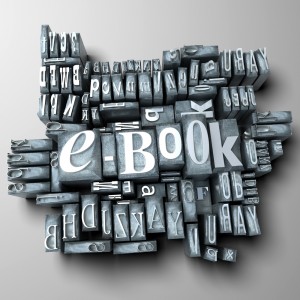‘Try before you fully buy’ – a new order in book ownership?
‘Try before you fully buy’ – a new order in book ownership?
‘Try before you fully buy’ – a new order in book ownership?
-
Hannah
-
Hannah
 I was born into a family that loved books. There were books in each room of our house – of all shapes, sizes, genres and authorships. During my childhood many people chose to leave my country due to the political situation there, and they would leave mountains of books in their wake. So my father would often come back from a second-hand shop staggering under the weight of a new boxful of books he’d picked up for a pittance. What a treasure trove!
I was born into a family that loved books. There were books in each room of our house – of all shapes, sizes, genres and authorships. During my childhood many people chose to leave my country due to the political situation there, and they would leave mountains of books in their wake. So my father would often come back from a second-hand shop staggering under the weight of a new boxful of books he’d picked up for a pittance. What a treasure trove!
For all of my life, then, I have been surrounded by books, largely due to the book-buying habit I built up. Until the evolution of the ereader and the ebook, that was how all readers lived: buy a book, read the book and either keep that book (most likely, for me) or pass it on, whether to a friend or to a charity shop; combined, of course, with membership at the local library.
But as they say, ‘the times they are a’changing’, thanks to ebooks. Some readers now shun all print books. Some shun all ebooks and stick to print only. The majority, I suspect, are like me and compromise: some ebooks, some print. And in that final category lies a new kind of book owner: the ‘try before you fully buy’ sort.
Here is the process, which is gaining ground rapidly among readers:
- Buy an ebook version of a book.
- If you really liked the book, go and buy it in paperback or hardback format, to keep on your bookshelf forevermore.
- If you didn’t really like the book, either archive it on your ereader or delete it entirely.
The end result is a bookshelf whose contents represent only those books you really, really love and want to read again and recommend to others. Orderly and straightforward indeed.
There is also an argument that this new approach to book ownership is more frugal than the traditional approach of taking a gamble on print books. For example, say you buy 50 books per year, approximately one per week, and say that a paperback costs £8 and an ebook costs £4.
If you buy all your books in print then your yearly outgoing is £400. Guestimating that only around 10 per cent of those books (five) are long-term keepers, you’ve spent £80, in effect, on finding books to hold on to.
But if you buy all your books in ebook format initially, your yearly outgoing is £200. Then you go out and re-buy five of the books in print (£40). Total outlay is £240; cost per retained book is £48.
But enough of the bewildering maths (always a subject that sent me off into a romantic daydream in my school days). Though the logic of buying all books in ebook format first may be sound, to do so is to lose out on a whole world of enjoyment and symbolism. You miss out on
- Browsing for hours in book shops, and queuing at the checkout with a new book or two, just for you, which gives you a warm glow in your stomach.
- Rummaging among second-hand books in markets and back-street stores, and finding little gems for a song.
- Receiving a book as a gift – something you’d never have chosen – and having the chance to broaden your horizons.
- The smell, the sound, the feel of holding books in your hand.
- The sense of risk, the thrill of taking a gamble on a new book. Doing so is an investment of faith, and there is something wonderfully exciting about sitting down to page through an unknown story. Yes, you may get to the end and feel the book wasn’t quite for you. But oh, you may get to the end and have loved, loved the book, and that object, that collection of printed pages bound together, will become an item you’ll treasure forever. Each time you pick it up you will remember the first read, the first experience. It becomes a little piece of you.
For me, then, while I’ll continue to read a mixture of print and ebooks, I don’t think I can ever become a follower of the ‘Try before you fully buy’ school. I need the magic. I need the connection.
How about you? I would love to hear your thoughts on the subject.
I’m a try before you buy kind of girl, myself– most of the time. There are those authors who are favorites of mine and whose books I’ll buy right away in print, but I read a lot of ebooks. Don’t get me wrong – I prefer print books, but convenience is also a factor for me. Unfortunately (to my daily horror), I don’t have a good bookstore near me, so ebooks are, at times, the best option for me. Not having a bookstore is a bad, bad thing to a book-a-holic like me, but perhaps it’s a blessing in disguise… Read more »
Thanks, Lindsey. Thank goodness for a good library! I agree – nothing can replace the joy of reading in print. Hannah xx